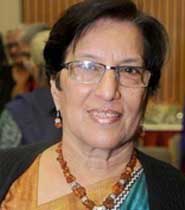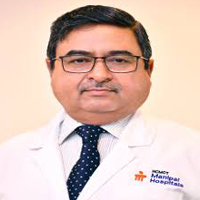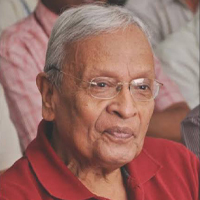Brain Tumor Surgery IN INDIA
The brain is one of the most complex and essential organs in the human body, managing all bodily functions and processing information from the external environment. The increasing prevalence of brain tumors has become a major concern due to challenges in diagnosis and treatment. As the brain governs numerous critical functions, any disruption caused by a tumor—whether benign or malignant—can significantly impair these functions. Tumors exert pressure on specific brain regions, further affecting their performance.
Surgery is the first line treatment option for brain tumors. The aim is to remove the maximum tumor while preserving vital brain tissue. Neurosurgeons achieve this by creating an opening in the skull, sometimes removing part of the surrounding bone for better access. In India, doctors are adopting cutting-edge techniques for brain tumor treatment.
One such innovation is ZAP-X Gyroscopic Stereotactic Radiosurgery, a robotic system specifically designed for brain and spine tumors. Additionally, technologies like CyberKnife and Gamma Knife, which deliver highly targeted radiation, provide effective alternatives for patients who are unsuitable for traditional surgery.
AI-Afiya Medi Tour helps patients access the best treatment options, tailored to meet their care and budget needs. Connect with our experts today by visiting our website and clicking the consultation button!
What are the signs and symptoms associated with brain tumors?
The size of the tumor plays a significant role in determining the signs and symptoms. Here is a list of potential indicators that may prompt you to seek medical attention:
Headaches
- Persistent headaches that worsen in the morning or during physical activity.
- New or unusual headaches unresponsive to pain relievers.
Seizures
- Sudden onset of seizures or convulsions, even in individuals with no prior history.
- Various types of seizures, including focal (localized) or generalized episodes.
Nausea and Vomiting
- Unexplained nausea and vomiting, particularly in the morning, unrelated to other illnesses.
Visual Disturbances
- Blurred or double vision (diplopia) and loss of peripheral vision.
- Sudden vision changes or abnormal eye movements.
Hearing Issues
- Gradual or sudden hearing loss, especially in one ear.
- Tinnitus (ringing in the ears) or balance difficulties.
Speech Impairments
- Slurred speech, difficulty speaking, or trouble understanding language (aphasia).
Weakness or Numbness
- Weakness or numbness on one side of the body (hemiparesis) or in specific areas like the arms or legs.
- Loss of coordination or balance, leading to walking difficulties.
Swallowing Challenges
- Difficulty swallowing (dysphagia) food or liquids.
Fatigue
- Persistent, unexplained fatigue that doesn’t improve with rest.
Brain tumors are categorized as cancerous (malignant) or non-cancerous (benign). Malignant tumors tend to manifest symptoms more rapidly, whereas benign tumors are usually slower-growing and associated with a more favorable prognosis. Currently, treatment options remain primarily limited to surgery and radiotherapy.
What are the treatment options for brain tumours in India?
Your doctor will conduct tests to examine the type and size of your brain tumour and whether it is cancerous. Your healthcare provider may suggest performing a biopsy (removing small pieces of tissue to examine under a microscope) or a spinal tap (lumbar puncture). They might also order special tests to measure your blood pressure or cerebrospinal fluid.
Surgery
Surgery is often the first and most common approach to treating brain tumors. In some cases, surgical removal followed by regular monitoring may suffice as the only necessary treatment. The objectives of brain tumor surgery include:
- Achieving complete removal (resection) of the tumor.
- Partially removing tumors located near sensitive brain areas to alleviate symptoms and enhance the effectiveness of additional treatments. By reducing pressure inside the skull, surgery can help improve symptoms and restore functions such as thinking, speaking, or vision.
Radiation Therapy
Radiation therapy is one of the best treatment options to get brain tumour treatment without surgery in India. Radiation therapy uses high-energy beams of X-rays, gamma rays or protons to destroy brain tumour cells and shrink the tumour. Radiation may be directed at one location (stereotactic radiosurgery or Gamma Knife) or multiple sites around the brain (whole-brain radiation). Your doctor often uses steroids before and after radiation to reduce brain swelling and anticonvulsant medications to help prevent or control seizures.
Chemotherapy
Chemotherapy may be necessary in the case of malignant brain tumours to destroy any remaining cancerous cells or prevent their recurrence, either alone or combined with surgery and radiation therapy treatments.
Some drugs, like temozolomide, are more effective at crossing the blood-brain barrier to target and destroy brain tumour cells than others. As chemotherapy for brain tumours usually comes in cycles with breaks between treatment cycles, you’d take these medicines for short periods each week for up to six cycles before having a gap between each treatment process.
Why choose India for brain tumor treatment?
India’s leading medical institutions and specialists provide exceptional care by integrating advanced technology with cost-effective solutions. Patients benefit from the expertise of seasoned neurosurgeons, cutting-edge facilities, and innovative treatments customized to their specific needs.
Brain Tumor Treatment in India
India’s approach to brain tumor treatment combines modern techniques, highly skilled professionals, and patient-focused care, ensuring the best possible outcomes for patients from around the globe.
Highly Skilled Oncologists
Indian oncologists are internationally recognized for their expertise, with extensive training and a proven track record in managing complex cancer cases.
State-of-the-Art Technology
Hospitals in India feature the latest advancements, including robotic-assisted surgery, high-precision radiation therapies, and sophisticated molecular diagnostic tools.
Cost-Effective Solutions
Treatment costs in India, including for brain tumors, are significantly lower than in countries such as the USA, UK, or Australia, offering savings of up to 70% while maintaining excellent quality.
Comprehensive Support for International Patients
Indian hospitals are well-equipped to serve international patients, providing services like visa assistance, translation support, and tailored care plans to ensure a seamless treatment journey.
Holistic Care Approach
Beyond medical treatment, care in India emphasizes post-treatment recovery, including rehabilitation, dietary guidance, and psychological support, ensuring the patient’s overall well-being.
What is the cost of various brain tumor treatments in India?
Various types of surgical procedures are performed, including the most famous craniotomy. Here’s a list of advanced procedures performed in India!
- Neuroendoscopy: A minimally invasive technique using an endoscope to remove tumors via small incisions or natural openings like the nose.
- Gamma Knife Surgery: A noninvasive procedure utilizing cobalt-60 radiation to target and halt tumor growth with precision.
- CyberKnife: A robotic radiosurgery system delivering high-dose radiation with real-time adjustments, ensuring painless and outpatient treatment.
- Proton Therapy: Using protons instead of X-rays, this precise treatment minimizes damage to surrounding healthy tissue, making it ideal for critical areas and pediatric cases.
- Targeted Drug Therapy: Precision medicine targeting specific genetic mutations or molecules driving tumor growth.
- Craniotomy: A traditional surgical method involving the temporary removal of part of the skull to access and excise the tumor.
| Treatment | Minimum Cost | Maximum Cost |
| Neuroendoscopy | INR 55,000 | INR 1,50,000 |
| Gamma Knife Surgery | INR 1,00,000 | INR 2,50,000 |
| Cyberknife | INR 3,00,000 | INR 15,00,000 |
| Proton therapy | INR 10,00,000 | INR 25,00,000 |
| Targeted Drug Therapy | INR 1,00,000 | INR 2,50,000 |
| Craniotomy | INR 2,50,000 | INR 8,00,000 |
The cost of the latest technologies used in India is comparatively less compared to western world. For example, the cost of gamma knife surgery in the USA is around 42 lakhs compared to 2.5 lakhs in India. There is a huge cost difference and services provided! Next is the list of factors that influence the overall cost of thr treatment. Get a better understanding and plan wisely!
What are the factors that influence the treatment of brain tumours?
Type and Stage of the Tumor:
- The complexity of the tumor, its location, and stage significantly impact the treatment approach and associated costs.
Treatment Plan:
- Surgical removal, chemotherapy, radiation therapy, targeted therapy, or a combination of these can vary in cost depending on the intensity and duration of the treatment.
Diagnostic Tests and Imaging:
- Advanced imaging techniques such as MRI, CT scans, and PET scans, as well as biopsies, add to the overall expense.
Technology Used:
- Treatments involving robotic surgery, stereotactic radiosurgery, or proton therapy are more costly due to the specialized equipment involved.
Geographic Location:
- Treatment costs may vary based on the country, region, or city, with metropolitan areas often being more expensive.
Hospital Type:
The type of hospital selected for treatment plays a significant role in determining the overall cost.
- Premium Hospitals: Facilities with advanced infrastructure, cutting-edge technology, and international accreditations (such as JCI or NABH) typically have higher fees for their services.
- Specialist Cancer Centers: Hospitals dedicated to cancer care often provide advanced treatments and specialized expertise, which can result in increased treatment costs.
- General vs. Specialty Hospitals: While general hospitals may offer more affordable care, specialty cancer centers usually deliver comprehensive treatment plans and improved outcomes, albeit at a higher expense.
Room Category
Accommodation costs play a significant role in determining the overall cost of brain tumor treatment.
- Standard vs. Private Rooms: Treatment costs will vary based on the type of room selected. Private rooms or suites with better facilities and more privacy generally come with higher costs compared to shared or general ward accommodations.
- Extended Stay: Patients who need prolonged hospital stays due to complications or follow-up treatments may incur additional room charges, further impacting the total treatment cost.
ADDITIONAL MEDICAL SERVICES
In addition to the core treatment, several other medical services can add to the cost of brain tumor treatment.
- Consultations: Increased number of consultations with oncologists, radiologists, or other specialists adds to the expenditure.
- Diagnostic Tests: Frequent diagnostic tests (such as blood tests, CT scans, MRIs, and biopsies) may be required throughout the treatment process, contributing to the overall cost.
Complications: Complications such as infections, surgery-related issues, or side effects from chemotherapy increases the cost.
Why choose AI-Afiya MediTour?
At Al Afiya MediTour, we are committed to making your medical journey smooth and stress-free. Our services are designed to support you at every step, offering free medical counseling to help you make informed health decisions. Our team provides expert opinions and transparent cost estimates to ensure clarity and trust. From visa and FRRO assistance to detailed travel arrangements, we handle all logistics so you can focus entirely on your health. With tele/video consultations, you can connect with top specialists before you even arrive. Additionally, we offer free translation services to facilitate seamless communication throughout your journey.
Pre-Treatment Support
We collaborate with leading hospitals and doctors to review your case, ensuring comprehensive support from the moment you choose to travel for treatment. We recommend the best treatment options tailored to your needs, providing a detailed breakdown of estimated costs for each option.
Post-Treatment Follow-Ups
Our commitment doesn’t end with your treatment. Our medical experts stay in touch through live video consultations, offering ongoing support. Your post-treatment records are securely stored as electronic files, ensuring easy access for future reference.
Travel Assistance
We provide expert guidance and full support for all your travel needs worldwide. From visa applications and flight bookings to insurance and familiarization with local conditions, we ensure a hassle-free experience.
Value-Added Services
To enhance your comfort, we offer value-added services such as language assistance and professional translators to bridge communication gaps. Additionally, we provide Indian SIM cards and essential tools like laptops, internet access, and mobile devices to keep you connected with ease.
Customized Packages
Our tailored packages are designed to address your unique medical and recovery needs, covering everything from treatment planning to post-care support.
At Al Afiya MediTour, we prioritize your well-being by connecting you to the best treatment options, balancing cost and quality care. Speak with our experts today—simply click the button on our website to begin your journey to better health!
What are the pretreatment procedures of brain tumours?
Before the surgery your healthcare provider will do certain procedures to locate, determine and customise your treatment plan. Here are the certain steps performed by the doctor before actually diving into your brain tumor!
To determine the precise location of the tumor and plan the brain surgery, your neurosurgeon may order various imaging tests, such as:
- Magnetic Resonance Imaging (MRI): It is an advanced technique for better imaging.
- Computerized Tomography (CT or CAT Scan): For detailed cross-sectional imaging.
- Angiogram: To visualize blood vessels in the brain.
To assist with surgical precision, your neurosurgeon might use fiducial markers—small, doughnut-shaped stickers. These are painlessly placed on your scalp by the radiology team before surgery. During surgery, the fiducials act as reference points, integrating navigation with the 3D map to guide your surgeon.
This image-guided technique functions like a GPS, allowing your surgeon to safely navigate your brain, locate tumors or other lesions, and avoid areas responsible for critical functions. It’s essential not to disturb or remove them and to avoid showering or washing your hair once they are in place.
In addition to imaging and pre-operative tests, your doctor will provide instructions regarding medications, fasting before surgery, and other preparations to ensure the procedure goes smoothly.
What are the post treatment procedures of brain tumors?
Following brain tumor surgery, you will likely spend the first night in a neuro-critical care unit (NCCU) for close monitoring. During this time, you may be connected to intravenous (IV) lines, a heart monitor, a catheter, and an oxygen mask. A dressing (bandage) will be placed on your head and typically removed within a day or two.
You will continue your recovery in a neurosurgery nursing unit after leaving NCCU. By the day after surgery, you should be able to get out of bed, eat meals, and take short walks. Once you are eating and drinking normally, the IVs in your arm will be removed.
Post-surgery pain is usually minimal. Most patients manage minor discomfort with acetaminophen, though stronger pain medications may be prescribed if needed, as advised by your doctor. Home care is equally important. Your doctor will instruct you about the duration of rest, motility and diet after the discharge. Regular follow-ups are key for faster recovery.
Top Brain Tumor Surgery Doctors in India
The right doctor to consult for a Brain Tumor Surgery case.
Dr. Sandeep Vaishya
Year of experience: 36
HOD and Senior Consultant at Fortis Memorial Research Institute, Gurgaon
Dr. Praveen Gupta
Year of experience: 15 Years of Experience
Dr. Rohan Sinha
Year of experience: 16 years of experience
Director & Senior Consultant at Jaypee Hospital
Dr. Sudheer Kumar Tyagi
Year of experience: 38
Senior Consultant at Indraprastha Apollo Hospital, Delhi
Dr. Sumit Singh
Year of experience: 25
Chief and Senior Consultant at Artemis Hospital
Dr. Veena Kalra
Year of experience: 37 Years of Experience
Dr. Vikas Gupta
Year of experience: 31 years of experience
Dr. A.K. Banerji
Year of experience: 50 years of experience
Dr. Himanshu Champaneri
Year of experience: 16
Senior Consultant at Marengo Asia Hospitals Formerly W Pratiksha Hospital, Gurgaon
Dr. Kapil Agarwal
Year of experience: 24
Senior Consultant and HOD at Marengo Asia Hospitals Formerly W Pratiksha Hospital, Gurgaon
Prof. (Col.) Dr. Bipin Walia
Year of experience: 41
Senior Consultant at Max Super Speciality Hospital, Saket, Delhi
Dr. Sanjeev Srivastava
Year of experience: 22
Senior Consultant at Artemis Hospital
Dr. Rana Patir
Year of experience: 32
Consultant at Fortis Memorial Research Institute, Gurgaon
Dr. Manvir Bhatia
Year of experience: 23 Years of Experience
Looking For The Best Doctor & Hospital?
Fill up the form and get assured assitance within 24 hrs!
How successful is brain tumor surgery in India?
The success rate of brain tumor surgery in India depends on factors like the tumor’s type, size, location, and the patient’s overall health. For benign tumors, such as meningiomas, the success rate is often 85–95%, as these are easier to remove completely. For malignant or complex tumors like glioblastomas, the rate is lower, often 60–80%, with a focus on prolonging survival and improving quality of life. India’s advanced medical infrastructure, experienced neurosurgeons, and cost-effective care attract many patients. Postoperative care, including rehabilitation and additional therapies like radiation or chemotherapy, significantly impacts long-term outcomes and recovery success.
FAQs
- What are the types of brain tumors?
Brain tumors can be classified into primary and secondary types. Primary brain tumors originate in the brain and include gliomas (e.g., astrocytomas, oligodendrogliomas), meningiomas, pituitary adenomas, and medulloblastomas. Glioblastoma multiforme is a highly aggressive form of glioma. Secondary brain tumors, also called metastatic tumors, arise from cancers elsewhere in the body, such as lung, breast, or melanoma. Tumors are further categorized by behavior: benign tumors, like certain meningiomas, grow slowly and are less invasive, while malignant tumors are aggressive and invasive. Classification also considers cell origin, growth rate, and genetic mutations, helping guide diagnosis and treatment planning.
- What is awake brain tumor surgery?
Awake brain tumor surgery, also called awake craniotomy, is a procedure performed while the patient is conscious. It enables surgeons to remove brain tumors located near critical areas controlling speech, movement, or other vital functions. During surgery, the patient responds to tasks or questions, helping the surgical team preserve essential brain functions. This technique enhances tumor removal accuracy while minimizing neurological damage, improving outcomes for patients with complex brain tumors.
- How long is the hospital stay after the brain tumor surgery?
The hospital stay after brain tumor surgery typically ranges from 3 to 10 days, depending on the complexity of the procedure and the patient’s recovery progress. Factors like the tumor’s location, extent of removal, and any complications, such as swelling or infection, influence the duration. Patients are closely monitored for neurological function and pain management. Discharge is usually considered when the patient is stable, mobile, and able to manage basic activities safely.
- Why are some brain tumors inoperable?
Some brain tumors are considered inoperable due to their location, proximity to critical structures, or extensive infiltration into surrounding brain tissue. Tumors near vital areas controlling speech, movement, or breathing pose high surgical risks. Additionally, deep-seated or diffuse tumors, like gliomas, may not have clear boundaries for safe removal. Patient health, tumor size, and potential postoperative complications also influence operability. Non-surgical treatments like radiation or chemotherapy are often explored in such cases.
- What are the procedures performed with inoperable brain tumors?
For inoperable brain tumors, treatments focus on managing symptoms and slowing tumor progression. Radiation therapy targets the tumor to shrink it or halt growth, often used alongside chemotherapy. Targeted therapies or immunotherapy may be employed for specific tumor types. Stereotactic radiosurgery delivers precise, high-dose radiation to the tumor. Palliative care, including medications for pain, seizures, or swelling, helps improve quality of life. Clinical trials may offer access to innovative treatments.
Get FREE Evaluation
Treatment plan and quote within within 24 hrs!
Let us help you
Get your personalized Estimate Now
Top Doctors & Surgeons in India
Best Hospitals in India
Best Treatments in India
Indian Medical Visa From
Copyright © 2024 Al Afiya Medi Tour | All Rights Reserved.















































